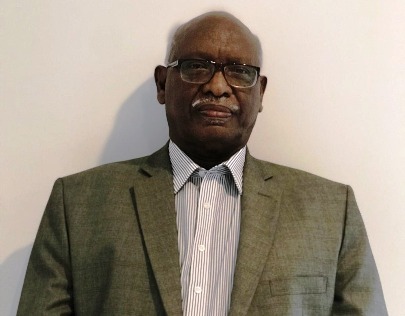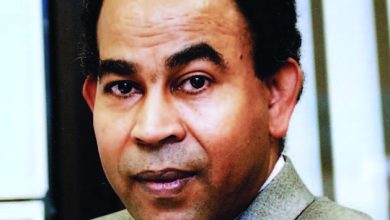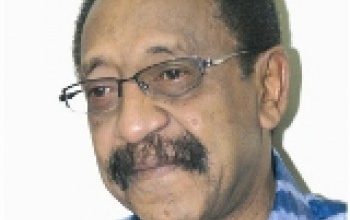Why Has the French Conference Failed in Political Matters?

By: Zain Al-Abideen Saleh Abdul Rahman
The conference on humanitarian support for those affected by the war in Sudan, which was held in France, ended its work yesterday, Tuesday, April 16, 2024. Both France and Germany, along with the European Union, had called for the conference to be held for humanitarian support, but they added political action to it with the aim of creating a ground for Joint political forces towards preparing a political project that begins after the war stops. Attaching political work to the conference is what gave it this media momentum, considering that the political conflict between the components is what caused there to be a state of anticipation and apprehension, given that France and Germany, along with the European Union, want to revive the “Framework Agreement” again, this time under the auspices of France and Germany after the failure of the US State Department experiment that was sponsored by Assistant of Secretary of Department Molly V. which gathered the leaders of Forces of Freedom and Change (FFC), the Central Council with representatives of the military component at the home of the Saudi Ambassador.
When the FFC Central Council asked to hold its general meeting in Cairo, it was by a European desire to open a dialogue with the political forces present in Cairo, and to facilitate the process of opening political dialogue between the political forces to be parallel to the military dialogue that was taking place in the Jeddah platform. The FFC Central Council was apprehensive about the move and contented itself with the statement it issued at the conclusion of its meeting by saying, “There should be a comprehensive dialogue except for the National Conference.” Then came the “Taqaddum” meeting in Addis Ababa, and Taqaddum was an American creation, which returned to amend the Cairo statement, the FFC Central Council, regarding the political dialogue. With the political forces, it set a condition “except for the National Congress and the Islamists with all their components.” This paragraph confirms the strength of the influence of the “Republicans” in the group. But what became clear to the Americans and Europeans was that Taqaddum was unable to add any new forces other than the forces with which it began its formation. It also revealed to them the reason for Hamdouk’s failure in Cairo to hold broad dialogues with the political forces and Sudanese groups… where Hamdouk contented himself with meeting with the Secretary-General of the Arab League and the Minister of Intelligence, Major General Kamel Abbas, and Hamdouk’s fear of meeting with the Sudanese in Cairo… which confirmed to the West and America that Taqaddum cannot offer more than what it has done, and therefore another way must be sought to bring together the Sudanese components in an open dialogue.
The meetings that European diplomacy had held with many political leaders and those interested in political affairs in Cairo assured them that gathering the various components in one hall for an open dialogue would build trust between those groups… especially there are some who are craving for power. They emphasized in every meeting with Western diplomats that the European Union was capable of organizing such a dialogue…and France, Germany, and the European Union ambassador were convinced to expand the agenda of the humanitarian conference to include a political agenda on the sidelines of the humanitarian conference…and as I mentioned In yesterday’s article, the majority of the attendees were those who attended the workshops that were held by Western organizations in both Kampala and Nairobi before and after the fall of the Ingaz regime. They were beyond the membership of traditional parties.
The political conferences that operate outside the country, and with external funding, cannot address Sudan’s political problems, because they imagine that they are trying to present “modern” forces that bypass the historical parties with a broad social base, which becomes a factor in their failure.. That the modern forces believe that their accession to power, if it is with external or other leverage, apart from the elections, will give them the opportunity to use state institutions to build their social bases, which is a totalitarian call enveloped and supported by the West, which is only looking out for its own interests.
The French political conference was declared a failure by Sultan Bahr Al-Din, who gave a very respectable speech and then withdrew, considering that this conference would not address the problem for which he came. The dialogue revealed the chasm of difference between the groups that the West is betting on. There remain leaders who do not see in this crisis except power quotas. There are those who believe that any talk now about quotas does not address the crisis and does not stop the war. Mr. Jaafar Al-Merghani, the Vice president of the Democratic Unionist Party (origin), chose the words of his speech very carefully in order to make them express the entire federal movement. In its various groups, except for a few, the speech was in line with the struggle and political legacy of the founding fathers, and at the same time it clearly and unambiguously defined the dimensions of the position. The speech came to confirm the position of the Unionist masses in support of the people who declared their side with the army since the beginning of the war. Jaafar Al-Merghani said “Our participation in this important forum came out of our keenness to strengthen communication with the international community, convey the Sudanese national voice in international forums, and express the visions of the Sudanese national forces that adhere to the unity of Sudan, and believe in the necessity of preserving the national and constitutional institutions of the Sudanese state, and at the forefront of which are the Sudanese Armed Forces, which protect the country’s territory and borders and guarantee the unity, security and peace of Sudan”. Jaafar added, saying, “We call on the European Union not to politicize humanitarian aid, and to deal with this issue from a humanitarian and not a political perspective, and we call on it to contribute to addressing the roots of the crisis and not just its symptoms, by condemning and criminalizing the Rapid Support Forces (RSF’s) attacks on citizens, occupying their homes, and attacking relief convoys, which led to the deterioration of the humanitarian situation in Sudan” The speech truly expressed the Unionist Party position in the crisis and war.
But Al-Merghani missed a great opportunity. He should have stood, even for a moment, to address the Sudanese who came to protest the conference, or participate with some who believe that they caused the displacement and extermination of their people. It was the talk of the moment that stole the media spotlight, and focused only on talking to the protesters. The conference ended and the gathering disbanded without reaching any results that the organizers had expected. Any conference that discusses the issue of war and peace in Sudan at the political table must not exceed the living forces in society and without any exclusion … We ask God for good insight.



